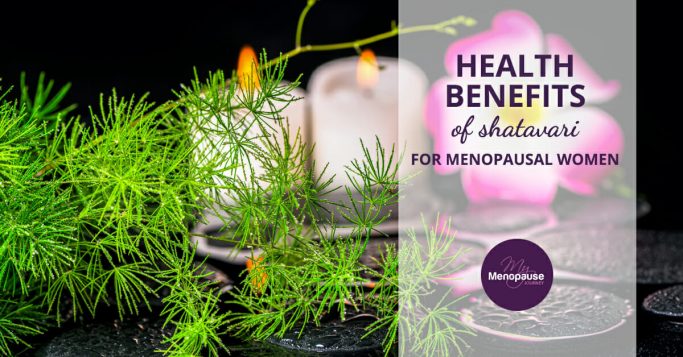Phytoestrogenic Herbs for Menopause
The bodily changes that come with aging in women cause several symptoms that could be a daily burden. This is especially true if the woman closes to her menopausal age. The good thing is that the related health disruptions can be addressed with alternative methods. The use of phytoestrogenic herbs is one popular technique today.
What are Phytoestrogenic Herbs?
These herbs are filled with phytohormones, the ones that resemble the structure and effects of estrogen. When they are introduced to the body, they usually function like estrogen. In this sense, you will have an increased level of estrogen that your body could use. If your estrogen levels are very low, you can take phytoestrogenic herbs to compensate for the hormonal deficiencies.
Many kinds of food contain phytoestrogens. Even the food you have in your fridge right now could have these substances, especially fruits and vegetables. However, the problem is that the amount of phytoestrogen they give is not usually enough for the body. On the other hand, the herbs contain large doses of phytoestrogens, which make them better options. The herbs are more effective in addressing menopausal symptoms and even osteoporosis.
Why is It Important to Take Herbs with Phytoestrogens?
One of the most important reasons women consume phytoestrogen herbs is that they can address menopausal symptoms. The presence of phytoestrogens in each herb helps the body achieve a healthy balance in the hormones it needs. It can help treat several symptoms related to menopause. In fact, studies show that women can reduce the occurrence of hot flashes by 10% to 20%, if they take phytoestrogenic herbs.
Aside from that, the phytoestrogens are also effective compounds that help the body fight against cardiovascular diseases and osteoporosis. It is also believed to help lower the risks of having breast cancer. Basically, the phytoestrogens work by decreasing inflammation and slow cell growth. Most cancer cells are fast-growing cells. With phytoestrogens, the growth of any cancer cells will be minimized.
The best and most important reason that you can probably get when taking phytoestrogenic herbs is the fact that it does not cause serious side effects, like the ones caused by synthetic treatments. Of course, these herbs are full of essential estrogen-like substances, but they are available in safe forms. They are also very readily available in the market so it would be easy for you to look for them.
Another thing is that it is a practical option to choose phytoestrogenic herbs. You can buy the herbs from the market or even grow them in your own garden. You can pick some and make your own blend to use for treatment. With this, you can save a lot more money. Plus, you know that it is safer to drink. If you make your own herbal medications, you are also helping save the environment, and it is food for your health. The procedures are apparently eco-friendly, so it can be a good option to use phytoestrogens in that case.
Common Phytoestrogenic Herbs for Menopause
Here are some of the most common phytoestrogenic herbs, which are known to be helpful for menopause. Useful tip, bookmark this post for your future reference!
- Black Cohosh
- Dong Quai
- Sarsaparilla
- Flax Seeds
- Licorice
- St. John’s Wort
- Chamomile and Valerian
- Red Clover
- Ginseng
- Ginkgo Biloba
Helpful Precaution
Although the phytoestrogenic herbs for menopause are excellent items that you should consider for treatment, there are things that you should be careful about while taking them. The phytoestrogens work by attaching to the estrogen receptors of the body. This is good because they can act as estrogens as well, especially if there is very low levels of the hormone. However, the danger comes in when there is already too much estrogen in the body. If this is the case, the phytoestrogens could take over the place of the actual estrogens that the body has normally produced. Instead of addressing problems, it could even make it worse.
In general, you would want to take phytoestrogens in average doses. Avoid overdosage, and make sure that you review all medications you are taking before pairing them with phytoestrogenic herbs. Even though the phytoestrogens do not cause too many adverse effects, they can destroy hormones’ normal production in the long run. If you keep on feeding your body with estrogen-like forms, it will lose its full potential to produce estrogen naturally. In this case, it is advised to take the phytoestrogenic herbs in moderation.
Tips on How to Use Herbal Medicines
Most herbs can be used as Tea. The herbs are dried and crushed to fine pieces to be brewed as tea. Some others are made into concentrated extracts or tinctures. It is often derived from a mixture of alcohol and chopped herbs. Some herbs are being reduced or dried to a powder form and are combined with water to make a paste and used as a topical substance. This can be applied to the surface of the skin.
Some of the herbs are incorporated in dietary supplements. They come with vitamins, minerals and other essential nutrients. Most of the herbs are also available in capsules, tablets and powder form. All supplements are taken by mouth and no other method of administration. It could be that you take them as a pill or a beverage.
Most of the herbal medications mentioned above didn’t have established daily values to be taken daily, if you have noticed. This is because these supplements are not fully regulated and their therapeutic claims are not yet 100% approved by food and drug departments. Although they are said to be very effective in addressing symptoms in menopause, they still need to be researched more to show their potency and efficiency.
How well did you respond to natural phytoestrogens? Share your story with us below!
👉 What to Do Next
Don’t go just yet — especially if you’ve been feeling off and no one’s given you real answers.
Go to the START HERE page.
It’s where things begin to feel clearer. No more second-guessing, no more sorting through conflicting advice. Just calm, honest support for where you are right now.
And if you haven’t yet, download the FREE GUIDE.
It’s quick, clear, and made to help you feel better — without having to turn your whole life upside down.


Gita is the founder of My Menopause Journey. Since 2014, she has been supporting midlife women by sharing hard-earned learnings from her own experience. To advance her knowledge, Gita puts a lot of her time and effort into understanding the broad spectrum of women’s health. She immerses in extensive research about the physical, mental and emotional aspects of menopause. Gita believes in the life-changing power of healthy, holistic living — this is where she anchors her message to all women. Learn more about her marvelous mission in About us - My Menopause Journey.





Can I take a polyestrogen herb with my hormone patch as well? I’ve had a full hysterectomy so I’m in surgical menopause. I’m 56. I just feel I need a supplement along with my patch. Thank you
Hi Brenda
All herbs react differently. Start with a little and see how you feel.
The best thing to do is to talk with your health practitioner or a herbalist to avoid adverse reactions.
Take care 🙂
Gita